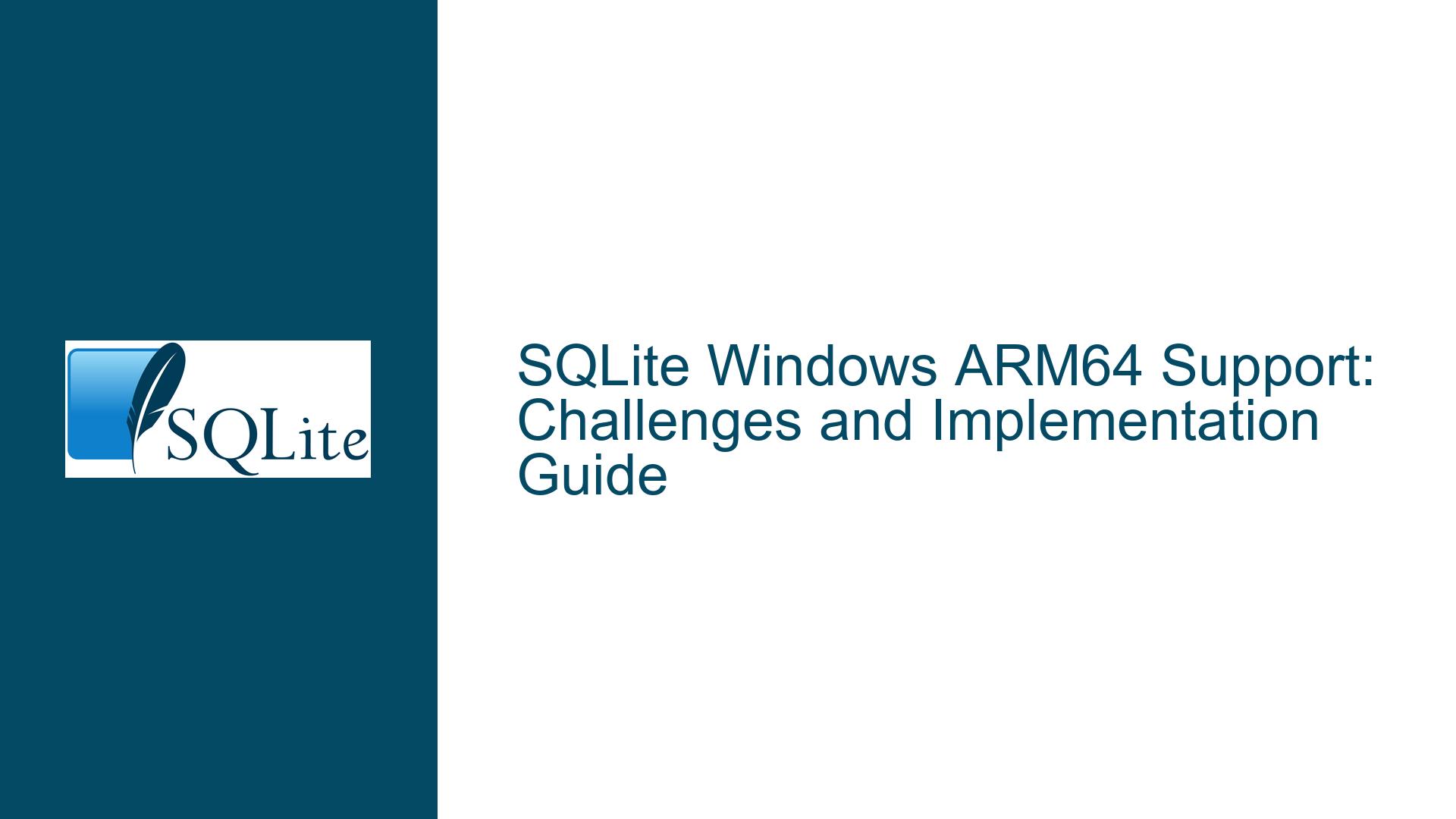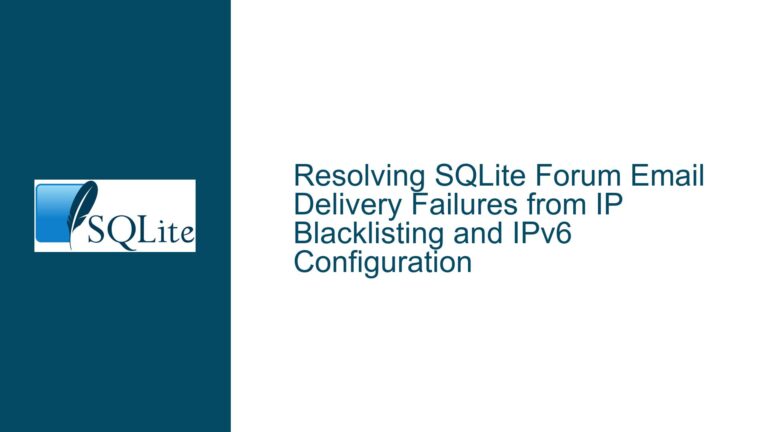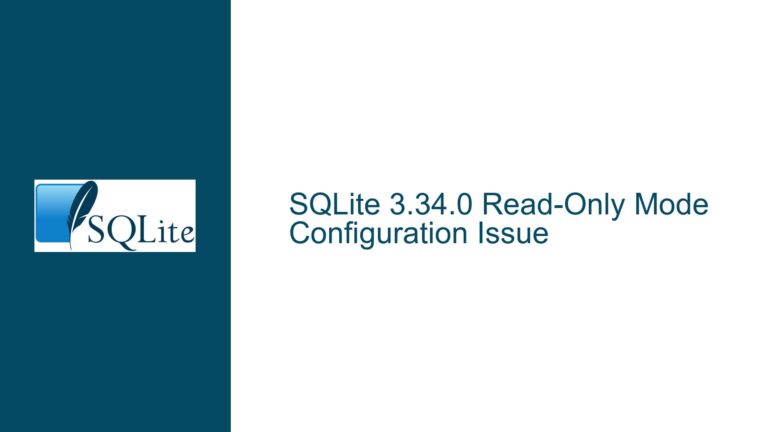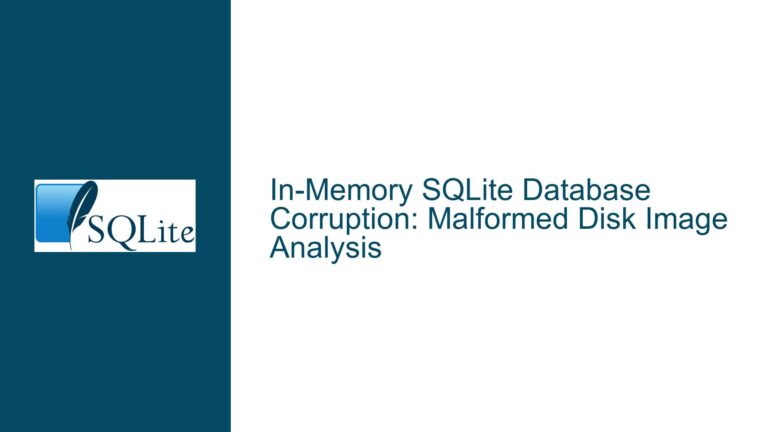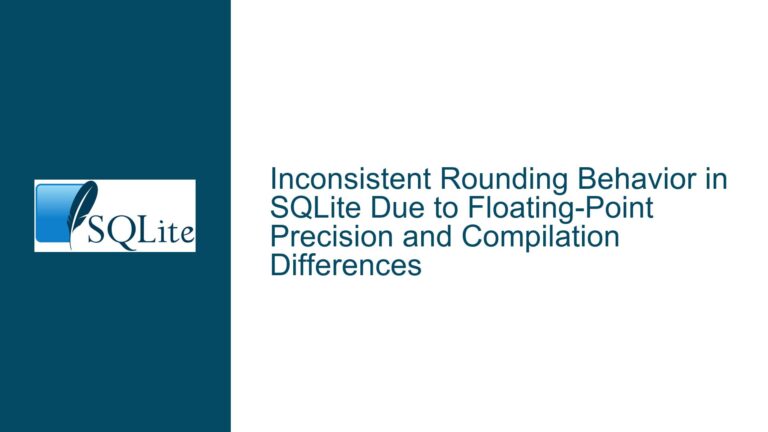SQLite Windows ARM64 Support: Challenges and Implementation Guide
Current State of SQLite ARM64 Compatibility on Windows
The landscape of Windows on ARM (WoA) platforms has evolved significantly with the introduction of high-performance processors like the Qualcomm Snapdragon X Elite series. These processors have demonstrated remarkable capabilities, offering substantial computing power while maintaining impressive battery efficiency of over 10 hours. The transition toward ARM64 architecture in Windows environments presents both opportunities and challenges for SQLite implementations, particularly in the context of development frameworks like .NET MAUI and cross-platform applications.
SQLite’s architecture traditionally focuses on maintaining robust backwards compatibility while ensuring consistent performance across supported platforms. The database engine’s current implementation status on Windows ARM64 reflects a complex interplay between architectural considerations and practical deployment scenarios. Applications utilizing SQLite through various frameworks may encounter compatibility issues specific to the ARM64 environment, despite the database engine’s otherwise universal compatibility across traditional x86/x64 Windows platforms.
The development approach for SQLite follows a deliberate, needs-based evolution pattern rather than a predetermined roadmap structure. This methodology ensures that architectural changes and platform support expansions occur in response to concrete requirements and practical use cases rather than speculative future needs. The decision-making process for incorporating new platform support, including Windows ARM64, adheres to strict compatibility constraints that preserve SQLite’s core reliability and performance characteristics.
ARM64 Integration Complexities and Framework Dependencies
The primary challenges in SQLite’s Windows ARM64 support stem from multiple interconnected factors. The database engine’s integration with development frameworks introduces additional complexity layers that affect application behavior on ARM64 systems. When developers implement SQLite in .NET MAUI applications targeting Windows ARM64 devices, they may encounter database functionality issues despite successful deployment on other platforms like Android.
Framework-specific implementations require careful consideration of binary compatibility and native code execution. The SQLite engine’s interaction with the Windows ARM64 architecture involves proper handling of system calls, memory management, and file system operations specific to the platform. These technical requirements must be balanced against SQLite’s stringent backwards-compatibility guarantees and performance expectations.
Development tools like Visual Studio 2022 and package managers such as NuGet play crucial roles in the deployment pipeline. While these tools support ARM64 development, the underlying SQLite implementation must properly support the target architecture for applications to function correctly. The successful operation of SQLite management tools like SQLite Studio on ARM64 Windows systems demonstrates the platform’s capability to handle SQLite databases, though application-level integration may require additional considerations.
Implementation Strategies and Alternative Solutions
Developers working with SQLite on Windows ARM64 platforms have several approaches available to address compatibility challenges. The immediate solution path involves careful evaluation of framework-specific SQLite implementations and their ARM64 support status. For .NET MAUI applications, this includes verifying the compatibility of SQLite NuGet packages and ensuring proper configuration of build settings for ARM64 targets.
Alternative database solutions like DuckDB offer native Windows ARM64 support while maintaining SQLite compatibility. This approach provides a viable pathway for applications requiring immediate ARM64 deployment while retaining familiar SQLite functionality. The decision to utilize alternative solutions should consider factors such as application requirements, performance characteristics, and long-term maintenance implications.
The development process for ARM64 support follows SQLite’s established pattern of organic evolution, where features and platform support expand based on demonstrated need and practical usage scenarios. This approach ensures that when ARM64 support is implemented, it meets real-world requirements while maintaining SQLite’s high standards for reliability and performance.
For developers currently facing ARM64 compatibility challenges, several technical approaches can improve application stability:
Framework Configuration Optimization
- Verify ARM64 target configuration in build settings
- Ensure proper SQLite package versioning
- Implement platform-specific database initialization code
Runtime Environment Verification
- Validate SQLite binary compatibility
- Monitor database operation logging
- Implement graceful fallback mechanisms
Cross-Platform Testing Protocol
- Establish comprehensive testing on ARM64 devices
- Verify database operations across platforms
- Document platform-specific behaviors
The implementation of SQLite in Windows ARM64 environments requires careful attention to platform-specific considerations while maintaining cross-platform compatibility. The development community’s experience with SQLite on ARM64 systems continues to evolve, contributing to the knowledge base that will inform future official support decisions.
Developers should maintain awareness of SQLite’s development patterns and community resources for updates on ARM64 support status. The project’s commitment to stability and backwards compatibility ensures that any future ARM64 support will maintain SQLite’s established reliability while expanding its platform reach. This methodical approach to platform support expansion aligns with SQLite’s proven development philosophy of responding to concrete needs rather than speculative requirements.
The successful deployment of SQLite applications on Windows ARM64 platforms ultimately depends on understanding these various factors and implementing appropriate solutions based on specific application requirements. As the Windows ARM64 ecosystem continues to mature, the SQLite community’s collective experience will contribute to more robust and comprehensive support for this emerging platform.
